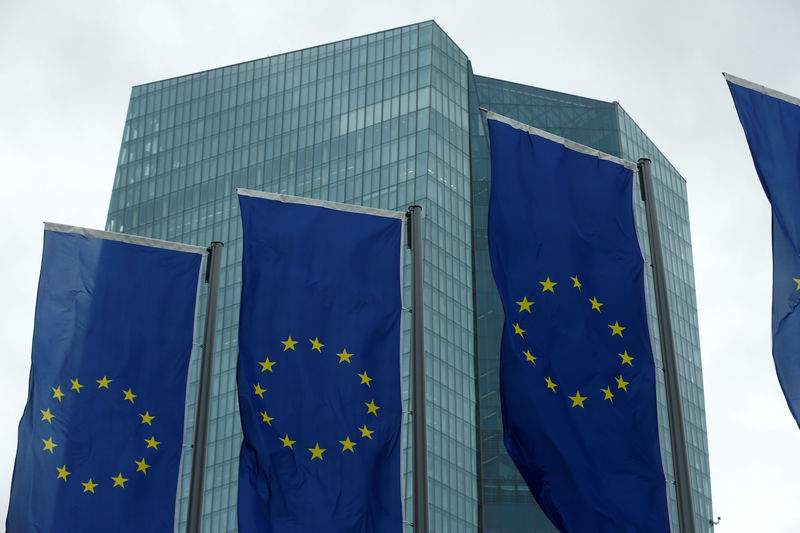 © Reuters. FILE PHOTO: The European Central Bank headquarters are pictured in Frankfurt
© Reuters. FILE PHOTO: The European Central Bank headquarters are pictured in FrankfurtBy Joseph Nasr
BERLIN (Reuters) – German inflation hit its highest level in five years in 2017, initial data showed on Friday, sowing the seeds of more discord among rate setters at the European Central Bank, where some policymakers want to stop pouring money into the euro zone.
Consumer prices harmonized to make them compatible with inflation data in other European Union countries rose by 1.6 percent year-on-year in December, compared to the 1.4 percent forecast by analysts polled by Reuters.
“This is the correction to the inflation course desired by the ECB,” said Alexander Krueger of Bankhaus Lampe. “And it is sustainable.”
On the month, prices in Europe’s largest economy rose by 0.8 percent compared to November, faster than the 0.6 percent increase expected by analysts.
German inflation figures are closely watched because of their influence on the ECB’s monetary policy.
The central bank earlier this month stuck to its pledge to keep injecting funds into the euro zone despite opposition from rate setters who point to increased growth and inflation forecasts for the single currency as reasons to change course.
German prices rose an average 1.7 percent over the year in harmonized terms, the largest increase since 2012, when inflation hit 2.1 percent.
High food costs made the largest contribution to the headline price increases, data released by the Federal Statistics Office showed, followed by increased rents.
OVERHEATING
The ECB’s governing council holds a monetary policy meeting on Jan. 25.
The German data will give hawkish members like Dutch central bank governor Klaas Knot more arguments in favor of unwinding the ECB’s 2.55 trillion euro ($3.06 trillion) bond-buying program.
The German economy is firing on all cylinders with both consumption and exports providing impulses this year, unfazed by political uncertainty created by Chancellor Angela Merkel’s failure to form a government after an election in September.
Some economists say the ECB’s low interest rate environment risks causing the German economy to overheat. The ECB says its policy is tailored for all 19 member states that use the euro.
The German government has lifted its growth forecasts, projected the economy to grow by 2 percent this year and 1.9 percent in 2018. The Bundesbank expects growth of 2.5 percent next year.
Fusion Media or anyone involved with Fusion Media will not accept any liability for loss or damage as a result of reliance on the information including data, quotes, charts and buy/sell signals contained within this website. Please be fully informed regarding the risks and costs associated with trading the financial markets, it is one of the riskiest investment forms possible.
Source: Investing.com






























